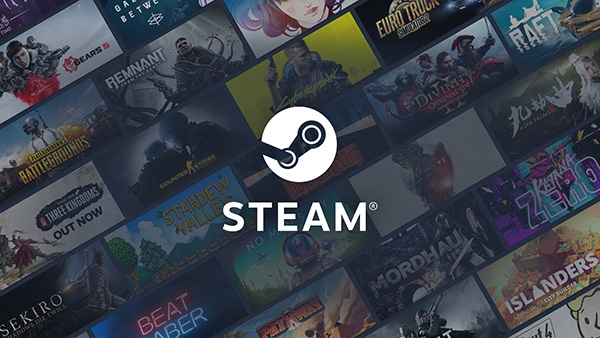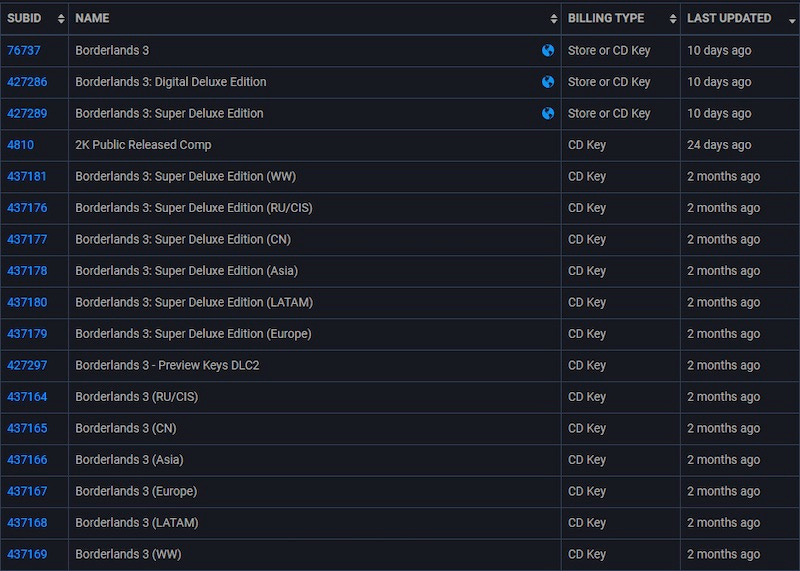
Featured Blog | This community-written post highlights the best of what the game industry has to offer. Read more like it on the Game Developer Blogs or learn how to Submit Your Own Blog Post
Analysis: why auditing your Steam keys is a great idea!
GameDiscoverCo curator Simon Carless explains why you should keep an eye out on where your Steam Keys are distributed.

[The GameDiscoverCo game discovery newsletter is written by ‘how people find your game’ expert & GameDiscoverCo founder Simon Carless, and is a regular look at how people discover and buy video games in the 2020s.]
Recently, we discussed loopholes or issues with regional variations in the Steam key ecosystem in previous newsletters, particularly with regard to Argentina pricing and on-Steam purchases - which Valve has further cleaned up recently, by the way.
We’ve talked about how some of this ‘key tourism’ is what we’d call piracy lite. (Often, it comes from those who probably wouldn’t buy your game at full price anyhow.) But that doesn’t mean we should ignore it entirely.
And there is an area of key policing - see above - that you, as a publisher/developer, should absolutely be concerned with. It’s one where you personally bear responsibility. Specifically: if you ask Valve for Steam keys, and then you give them to third parties, are you absolutely sure that they are being used in the way that you expect?
Broadly, there are two possible ways for Steam keys to get misused in some way:
A Steam user has managed to directly buy the game key from your official partner - but at a much lower price than you intended.
The Steam user that bought your keys at the expected price has somehow managed to resell it to another person/site at a profit.
Obviously, if you don’t do any deals with third parties, there will be no Steam keys ‘in the wild’ to have these issues with. But you will need to request keys if there are bundles or subscriptions you want to be in (Humble, Fanatical, and more), or third-party stores you do deals with (like Humble, GreenManGaming, Fanatical, and others.)
And then there may be sites you didn’t give Steam keys to, but have copies anyhow, like Kinguin, Gamivo or G2A - though some devs also deal directly with those sites, so it can be confusing. (BTW, IsThereAnyDeal keeps an eye on third-party sites for deals on Steam keys. It’s a good place to look for deals metrics in general.)
Anyhow, most of the first-party loopholes around Steam keys have been fixed a long time back by Valve. (For example, it’s been many years since you could generate Steam keys as gifts. Nowadays, you gift a game directly to an account, and it has to cost a similar price, regionally speaking.)

When it comes to ‘people buying your game for much cheaper than you thought’, some very large publishers try to control for this by doing regional locks for Steam keys. See the above example for Borderlands 3 from SteamDB showcased in this HLPlanet article. But that can be a hassle to manage, for multiple reasons, and has to be requested manually.
As for both illicit selling and reselling, big Steam key hubs like Humble have put a lot of work into stopping this, especially for key bundles. For more info, see this post from a year or so back: “What can be said with some degree of certainty is that Humble Bundle is cracking down on trading, gifting, giveaways, and reselling. This is probably being tracked through the gift link option and/or accounts linked to your Humble profile.”
So: when you’re giving a worldwide key to a third party site, are you sure that they’re doing a good job of gating, if they offer regional pricing? For example, somebody pointed out to us that Yuplay.ru (a Russian key reseller) has been popping up on a Spanish deals site on Steam, with offers as cheap as 5 Euros for Resident Evil 7’s season pass. Maybe it’s possible to buy at Russian prices, even if you don’t live in Russia? It’s definitely worth asking potential partners about this.
And if you want to keep track of your Steam key ‘leakage’, then actually auditing your game’s keys from a reseller site like Kinguin is a great idea. We spotted that Orcs Must Die 3 has a bunch of cheap keys ($8, instead of $30) available there. If you’re the dev/publisher, simply go buy a few yourself, work out who you originally sent out the Steam key to, and decide whether you’re happy with the result.
One other semi-related thing: some of the third-party key sites can end up doing ‘unexpected’ discounts - sometimes ones that they pay for the difference on. That way, they can attract attention and revenue and pick up the 30% cut that normally goes to Valve. But… it’s still cheeky and maybe not good for your game, right?
Anyhow, the whole Steam key ecosystem is complex, and I may not have done it justice here - please ping me if you feel like there’s things that should be added. Here’s a great PC Gamer article from 2019 you should all read, which gets deeper into both G2A controversy - which was hot at the time, and still rages - and the key reseller space in general.
And in some ways, I dig Dave Oshry from New Blood’s attitude here: “I really have no interest in putting our games on any of these other endless bundle or reseller sites to make an extra few hundred dollars every few months and have our games wind up on grey markets like G2A. You want our games? Go get them on the big boy stores like a big boy or just go pirate them if you don't wanna spend the money right now.”
On the other hand, some of these big ‘devs give them Steam keys’ reseller sites have built up large followings, email lists, and so on. So they definitely have some value if you can get prominently featured on them. But there’s big pluses AND minuses.
[We’re GameDiscoverCo, a new agency based around one simple issue: how do players find, buy and enjoy your premium PC or console game? You can subscribe to GameDiscoverCo Plus to get access to exclusive newsletters, eBook and a Discord, plus interactive daily rankings of every unreleased Steam game, and more besides.]
Read more about:
Featured BlogsAbout the Author
You May Also Like









